This past year, members of the Duke Physician Assistant (PA) Program community, like so many of us, faced immeasurable challenges. The increased visibility of racially-targeted crimes and the subsequent protests and reckoning, police inquiries and trials added a thick layer of extra stress to an already distressing time. Political tension and a prolonged election season depleted our emotional reserves and increased the risk of anxiety, depression, and workplace stress.
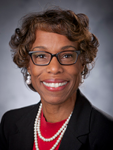
The PA Program team is working together to support the mental health and wellness of the community. Program Director Jacqueline S. Barnett, DHSc, MSHS, PA-C, works to be both proactive and flexible. To her, this approach—along with having a caring, compassionate, and dedicated team—is the primary reason the Duke PA program successfully navigated the monumental challenges of the past year.
Barnett looks to the Henry Ford quote: “Coming together is a beginning, staying together is progress, and working together is a success.”
“This quote really epitomizes the path of the Duke PA program this past year,” she says. “It was really all about teamwork!”
While there was not much that Barnett could do to dispel the fear of the truly unknown, she started the pandemic with weekly Zoom meetings with faculty and staff to present as much transparency as possible.
Checking in
Assistant Admissions Director Wendy Elwell-Paige, MS. says the check-in meetings were a source of support in the early days.
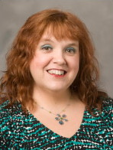
“Dr. Barnett had all-hands-on-deck check-in meetings to let us know what was going on at Duke, but more than that, to make us feel heard,” Elwell-Paige says. “We all huddled safely in our own bubbles, but we were together. Being cooped up offered its own challenges, but that Wednesday check-in was instrumental; we felt our community, we built each other up.”
Preclinical and clinical faculty and staff held similar meetings with students. Barnett says that as soon as she knew something, she tried to disseminate it to everyone involved. During those meetings and in emails, she also stressed that grace should be the rule, rather than the exception.
“There is no road map for what we are experiencing, it affects each of us differently, and we must give each other grace,” Barnett says. “We will use what we have learned from this to be a more innovative and flexible program, while we continue to get through it as a team.”
Faculty and staff took that message to heart. During planning sessions, everyone remained cognizant of the workload of their colleagues not just in the office, but also at home. From clinical practice, to family members at high-risk for COVID, to virtual schooling elementary-aged kids, the PA program's staff and faculty had more on their plate than ever. So whenever possible, coworkers jumped in to help each other where needed and when needed.
"We have a really amazing team, a strong and formidable team, and we stand on a secure and well-protected foundation. I will advocate until I cannot speak to protect and promote the success of the DPAP team,” Barnett says.
Many staff and faculty had children participating in virtual school for part or all of the school year. It was not unusual to see parents juggling work and childhood education at the same time.
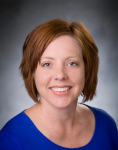
Assistant Professor Quincy Jones, MSW, MHS, PA-C, says that without this understanding of work/life balance, “there’s no way that both my spouse and I could have continued to work. It was still incredibly challenging to work and balance meeting our kids’ virtual learning needs, but I’m truly grateful that we were afforded this flexibility.”
Communication
Open communication was an important piece of that foundation, even when that communication may feel uncomfortable.
After the murder of George Floyd last June, Barnett sent out an email addressing the current events.
"When discussing topics of identity and inequity, there may be a tendency to retreat and not address 'sensitive' issues like race, religion, gender identity, sexual orientation, etc. . . but I don’t want us to do this at DPAP,” she wrote. “Instead, I encourage all of us to find some way to address these issues to ensure that members of our community don’t suffer in silence. . . especially when we have been even more isolated due to COVID."
Elwell-Paige says, “As we went through a heightened sense of social iniquities and as systemic racism hit us squarely in the face as we watched a man be murdered, Dr. Barnett helped bring us all together continuously.”
Throughout the last year, support groups have become the norm for the PA program. A meditation workshop early in the pandemic was followed later by virtual town hall events. Faculty and staff created an ongoing group to discuss and learn how to be better allies.
Support
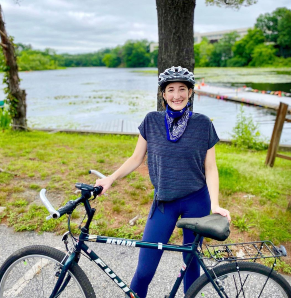
The program’s student organization, the Eugene A. Stead Society, focused on the mental and physical health of students throughout the year as well as on racism and justice.
First-year student and Stead Society Wellness & Sustainability Chair Dani Kessler says this included Monday night yoga, Pilates, and Zumba classes, a step challenge and fundraiser, and the creation of a hiking and running club.
Soijett Blue, Stead Society Diversity Chair for the class of 2022 says, “Last year following the aftermath of George Floyd's death, there was a town hall that was held where faculty, staff, and students were invited to speak about their current mental state and how we as a community could improve. Through the town halls, there has been a great sense of togetherness that is truly needed in this time. Being able to listen to other students and their perspective has been truly enlightening.”
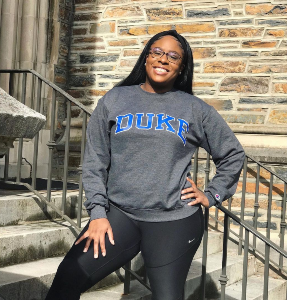
With the increase in hate crimes toward the Asian American community, first-year student Michelle Lee cites assistant professor Alicia Bolden, DMSc., MPH, PA-C, as a faculty member who stepped forward to help navigate these difficult times.
“I am constantly scared for my parents’ safety after witnessing the increasing hate crimes toward the Asian American community occurring in New York City, a city that I call home. I am scared that the next time my mom takes the train to work, she could be assaulted or pushed to the train tracks. I appreciate that I was able to work with Dr. Bolden to raise awareness on this issue and share my own experiences through the AAPI Listening & Support Session town hall that we had last month.”
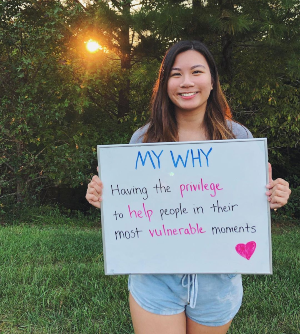
Not only was the communication encouraged to be open, so was the avenue to seeking help and support. Emails were sent to course coordinators asking them to allow for flexibility with deliverables and tests. Students were asked to reach out to their advisors, and advisors were asked to reach out to students. Reminders were sent with institutional mental health resources such as Duke Counseling & Psychological Services (CAPS) for students and Personal Assistance Service for employees.
Blue says, “The CAPs program is a great place for students to speak with therapists to aid with the mental load of PA education and outside stressors. Additionally, speaking with our advisors and 2nd year PA mentors aid in adding tremendous help to alleviating our stressors.”
Moving back into 800 S. Duke St.
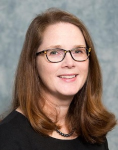
Assistant professor Betsy Melcher, MS, MHS, PA-C, says, “I am proud of the way our program has focused on supporting students with innovative strategies to maintain the quality, breadth and depth of medical/clinical education and keeping them on track to complete the program in a timely way. I think that we have applied immeasurable flexibility toward student needs, in ways that I have not observed us managing before. And I think that we are the better because of this needed adaptability.”
Elwell-Paige says, “Work added some normalcy to our lives and the DPAP community added the emotional support. We all had times when we crashed miserably. We burned out. We cried. We lost loved ones. But the support provided by our community gave us a boost and one less thing to worry about.”
This sort of flexibility and open communication continues to buoy the Duke PA program as it begins to bring faculty, staff, and students back into the building on a more regular basis.